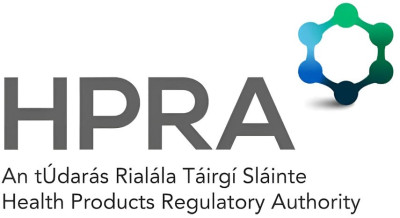Quality Management Systems (QMS) are essential in the life sciences industry, ensuring that products such as pharmaceuticals and medical devices meet the required standards for safety, efficacy, and regulatory compliance. The integration of data science into QMS is significantly improving how companies maintain and enhance product quality. By utilizing data-driven insights, life sciences organizations can achieve greater accuracy, reduce risks, and make more informed decisions, leading to better outcomes for both patients and businesses.
How Data Science is Enhancing Quality Management Systems in Life Sciences
Leveraging Data-Driven Insights to Improve Accuracy, Compliance, and Patient Safety in the Life Sciences Industry

Data science plays a critical role in Quality Management Systems by enabling the collection, analysis, and interpretation of large datasets. In the context of QMS, data science involves the integration of data analysis, machine learning, and predictive modeling into various quality management processes. This integration enhances process control, risk management, and compliance monitoring, making QMS more robust and responsive to industry demands.
Benefits of Data-Driven Quality Management Systems
The integration of data science into QMS enhances accuracy and consistency by minimizing human error and providing real-time feedback. Data-driven systems can quickly identify deviations from standard processes, allowing for immediate corrective actions, which results in more consistent production outcomes.
Furthermore, predictive analytics enables a proactive approach to risk management within QMS. By analyzing historical and real-time data, companies can anticipate potential risks, such as equipment failures or quality deviations, and implement preventative measures. This approach reduces downtime, prevents product recalls, and ensures continuous production of high-quality products. Data-driven QMS provide quality managers with comprehensive information that supports better decision-making. Advanced data analysis tools process large amounts of data quickly, delivering insights that enable managers to make informed decisions efficiently. This enhances the overall effectiveness of quality management processes.

Data science plays a critical role in ensuring patient safety by maintaining the integrity of products throughout the manufacturing process. Real-time monitoring and predictive analytics help detect any quality issues early, preventing compromised products from reaching patients. This proactive approach minimizes the risk of adverse effects and ensures that patients receive safe and effective treatments. It also supports regulatory compliance by providing detailed, traceable data that can be easily audited. Automated systems ensure that all quality control activities are documented accurately and that any deviations are promptly addressed. This not only helps maintain compliance but also strengthens trust with regulatory bodies and customers.
Key Applications of Data Science in QMS
Data science enables continuous monitoring of production processes, ensuring that all parameters remain within predefined quality thresholds. Advanced sensors and data analytics tools identify any deviations from standard processes and facilitate immediate corrections, thereby maintaining consistent product quality. Predictive maintenance, supported by data science, allows companies to anticipate equipment failures and schedule maintenance before issues occur. This reduces unexpected downtime and ensures that equipment operates at optimal efficiency, contributing to consistent quality control.
Supply chain management is enhanced by data science by ensuring that raw materials and components meet quality standards before entering the production process. Data analytics can identify potential quality issues within the supply chain, enabling companies to address them early and maintain a reliable supply of high-quality materials. It also streamlines the generation of compliance reports and quality documentation. Automated systems collect and organize data, ensuring that all required information is readily available for audits and regulatory reviews. This reduces the administrative burden on quality teams and ensures documentation accuracy.
Challenges and Considerations
The effectiveness of data-driven QMS depends on the quality and integrity of the data used. Poor data quality can lead to inaccurate predictions and faulty decision-making. Companies must prioritize data governance to ensure that data is accurate, secure, and reliable. Regular audits and validations are essential to maintaining data integrity.
Additionally, integrating data science into existing QMS can present challenges, including the need for specialized skills, data integration issues, and resistance to change. Successful implementation requires a clear strategy, effective change management, and ongoing support for employees as they adapt to new tools and processes.
Data science applications within QMS must comply with regulatory standards set by bodies such as the FDA, EMA, and HPRA. Companies need to ensure that data-driven systems are validated for accuracy and reliability and that all automated processes are fully documented and auditable.
The Future of Data Science in Quality Management

The role of data science in QMS is expected to grow as new technologies emerge. AI-driven quality management, advanced analytics, and blockchain for traceability are becoming more prevalent in the industry. These innovations will further enhance the capabilities of QMS, leading to more efficient and effective quality management. The continued integration of data science into QMS will significantly impact the life sciences industry. Companies that adopt these innovations will be better equipped to maintain high-quality standards, ensure regulatory compliance, and adapt to changing industry demands. This will result in safer, more effective products and improved outcomes for patients and the industry.
The integration of data science into Quality Management Systems represents a significant advancement for the life sciences industry. By enhancing accuracy, improving decision-making, and enabling proactive risk management, data-driven QMS are transforming how companies approach quality control. While there are challenges to implementation, the benefits of data science in QMS are clear, making it an essential tool for maintaining high-quality standards and ensuring regulatory compliance.















